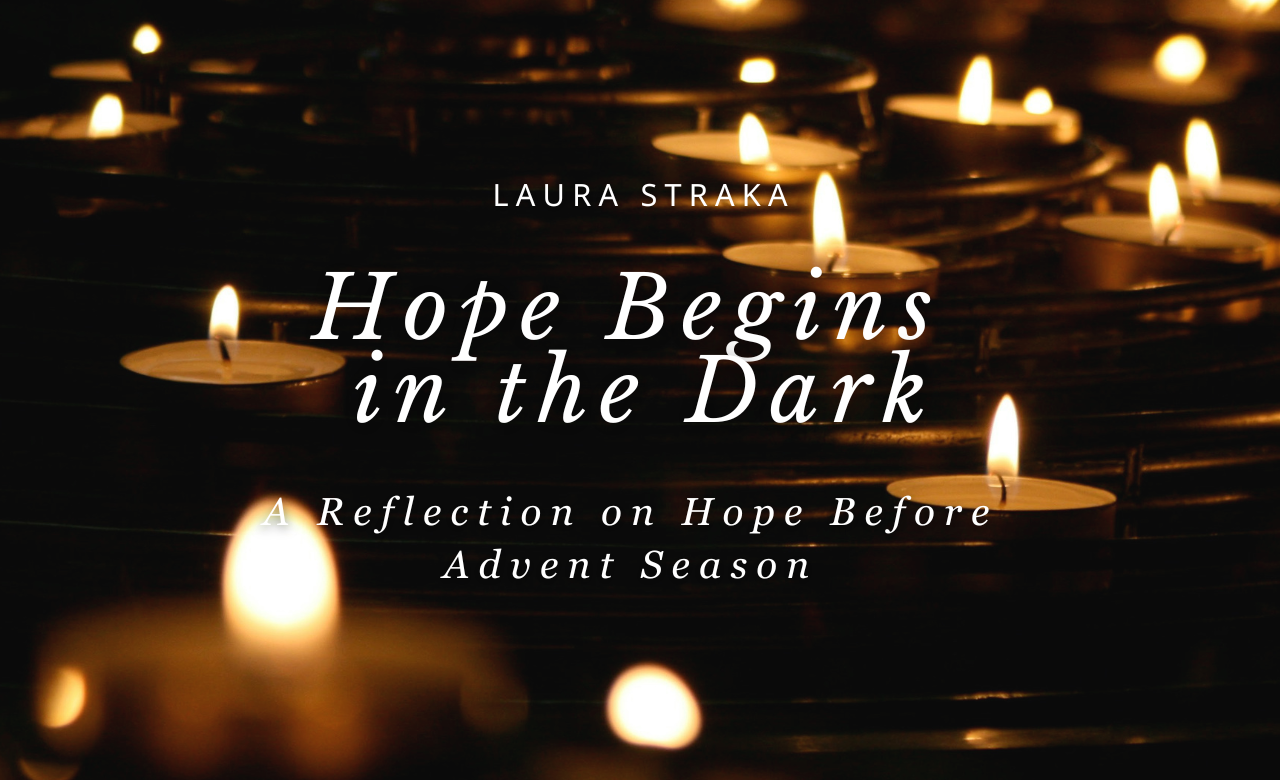There is nothing like being stuck in traffic. I live in Atlanta, a city notorious for traffic at any hour of the day. When we are stuck in traffic, we cannot see what is going on up ahead. We feel blind. There is no telling when movement will come. We feel helpless. Add to this a sense of urgency when we need gas, the bathroom, or to make an important meeting. As time drags on, we increasingly feel distress. When we are stuck for long, the little things begin to add up: it starts to rain, and the unceasing glare of red break lights make your head hurt! We feel angsty and irritable. There is nothing we can do but sit there, stuck in traffic.
Many of us know the feeling of being stuck. We wonder if things will ever change when we are faced with yet another disappointment and when our longings remain unmet. We have many reasons to be discouraged when things keep going wrong, when physical pain persists, or we are acutely reminded of broken relationships. We wonder how we will make it through. How could things get better? God is nowhere to be seen and we are alone. This is where hope enters the picture. Hope begins in the dark. Hope dislodges us when we feel stuck. But how?
Hope does not come naturally. It is a matter of spiritual cultivation. When we are in the dark, the solution is not having a monster truck to plow over our circumstances. It is not knowing the future in order to avoid the inconvenience of being stuck altogether. Hope is more like a traffic helicopter that gets the ariel view of the situation – namely it sees God’s presence. What is hope? Hope means to turn our attention to God. In the face of the darkness, hope turns on the light to view God on the throne, widening our perspective narrowed by darkness and fear. Hope is productive. It moves us from focusing on our circumstances to beholding the face of God so that we see his presence, his promises, and his power. The experience of hope may surprise you – it is ridiculous, it is confidence, and it is groaning, but the fruit of hope is strengthened faith.
Hope is Ridiculous
Our first impression of hope is that it is ridiculous. Against all visible evidence, we are going to hope that good can come out of death? Yes. Everything is pointing toward us being crushed and yet we can say that all will be well? Yes. To an outsider, hope looks like delusion, a thing of fairy tales. It is even offensive to say that things could change when nothing has budged for days, weeks, or years.
Consider how God promised what was medically impossible to Abraham. Though his body was as good as dead, Abraham would have offspring numbering the stars? Since Sarah’s womb was old and barren, this promise is ridiculous and delightful. She laughed aloud when the angel of the Lord tells her she would conceive! Hope is laughable and foolish –apart from the work of God, which is the very basis of our hope.
God’s presence and his power are the foundations of our hope. After asking many questions of God, Habakkuk concludes his book by turning his attention to the LORD with the littlest and most powerful conjunction: yet. Habakkuk 3:17—19 says, “Though all is barren and though famine persists, yet I will rejoice in the LORD – he will be my strength.” Hope says, “though… though… yet God.” Hope is the conviction that with God, nothing is impossible. We are not forsaken.
Hope is Confidence
Hope turns our attention to God, but not God in the abstract: a very particular God filling in the details of his character and his action. Think of Lamentations 3, “Yet this I call to mind and therefore I have hope,” followed by the most stunning list of the character of God. Hope is certainty. Hebrews 6:13—20 tells us that our reason for hope is God’s unchangeable purposes. It is impossible for God to lie, and so he is trustworthy to keep his promises, no matter how wild they may be. We don’t just take God’s word for it. He himself has proven his trustworthy love in Jesus. Jesus is our Living Hope who has defeated sin and death. He is the Resurrected One. More than this, He is our High Priest interceding for us right now. He has promised to return to make all things new. Our Living God is a God of Reversals, plentiful in redemption, and merciful and gracious toward his people. The story of redemption is dripping, saturated with hope because God is at work.
Hope is a form of spiritual defiance. It is not stubbornness for stubbornness’ sake, rather, it is defiance against despair and death because of something transformative about God. Hope remembers God’s presence and power. When suffering and want drags on, hope refuses to “curse God and die.” (Job 2:9) Hope says, “Even though I see no evidence of God’s presence right now, I know he is with me.” Hope clings to God’s promises – not that we will get everything we want, but that God will always be good to those who wait upon the LORD.
Hope is Groaning
Before you begin to think that hope is only a theological exercise of rehearsing Bible verses, remember that hope begins in the dark. Hope comes into play when we look at something that is broken and long for it to be better. There is something inescapably uncomfortable about hope. My favorite Bible passages on hope, Hebrews 6, Lamentations 3, and Romans 8, all have a tension in common: confidence and agony.
The work of hope is a lot like children’s nursery rhymes that sound happy and playful. But if you look closer, the lyrics are very dark. “Ring Around the Rosie” is a song about dying of the plague. “Rock-a-bye-Baby” is about a cradle falling out of a tree when a branch breaks! Hope is the language of the turmoil of longing and waiting. Remember that Abraham waited 25 years for Isaac to be born – such agony!
Hope is risky. People who do not engage in hope do not groan, do not long, and do not open themselves to the possibility of goodness. Hopeless people are hardened. They have no imagination for change. Despair isolates. Hope, however, savors the goodness of desire without making the desire everything. Hope refuses to abandon the goodness of the thing we long for. Hope holds it up to the Lord and waits for Him to act. Hope groans for the redemption of our bodies and the world. Hope looks darkness in the face, naming the decay and futility, and groans for freedom!
Hope Strengthens Faith
The rich fruit of hope is deepened trust in the LORD. If you know Abraham’s story, you know how much he struggled to believe God would make good on his promise. He took things into his own hands (Hagar) and jeopardized his wife’s womb (pretending she was his sister twice). And yet, when the promised one was born and God asked Abraham to give Isaac back, he obeyed immediately. How much Abraham must have grown in trust during those years of waiting and longing to follow God’s call to sacrifice his son! He believed that God could raise his son from the dead (Heb 11:19).
This is the very reason we can wholeheartedly enter the groaning of hope – because Jesus overcame death so that we would never be overcome by death. Jesus is raised and we will be raised with him, so darkness does not have the final say. We can risk the agony of hope because we will not be crushed. The pattern of the Christian life is resurrection after death! To hope is to cultivate eyes for resurrection when everything smells of death.
To cultivate hope is to ask God where he might show up and work. Daily be on the lookout for God’s presence in your life and keep asking for his help and provision. Seek to declare his steadfast love in the morning and his faithfulness by night (Ps 92:2). Refuse to listen to the voice of despair that says we are alone and nothing will ever change. When we feel stuck, we must – we get to!—turn our eyes to the Lord.
Laura Straka has worked for Reformed University Fellowship at Emory University since 2014. She has a MABS from RTS Atlanta. Laura and her husband Weston love their Atlanta neighborhood and their church, Atlanta Westside Presbyterian.

